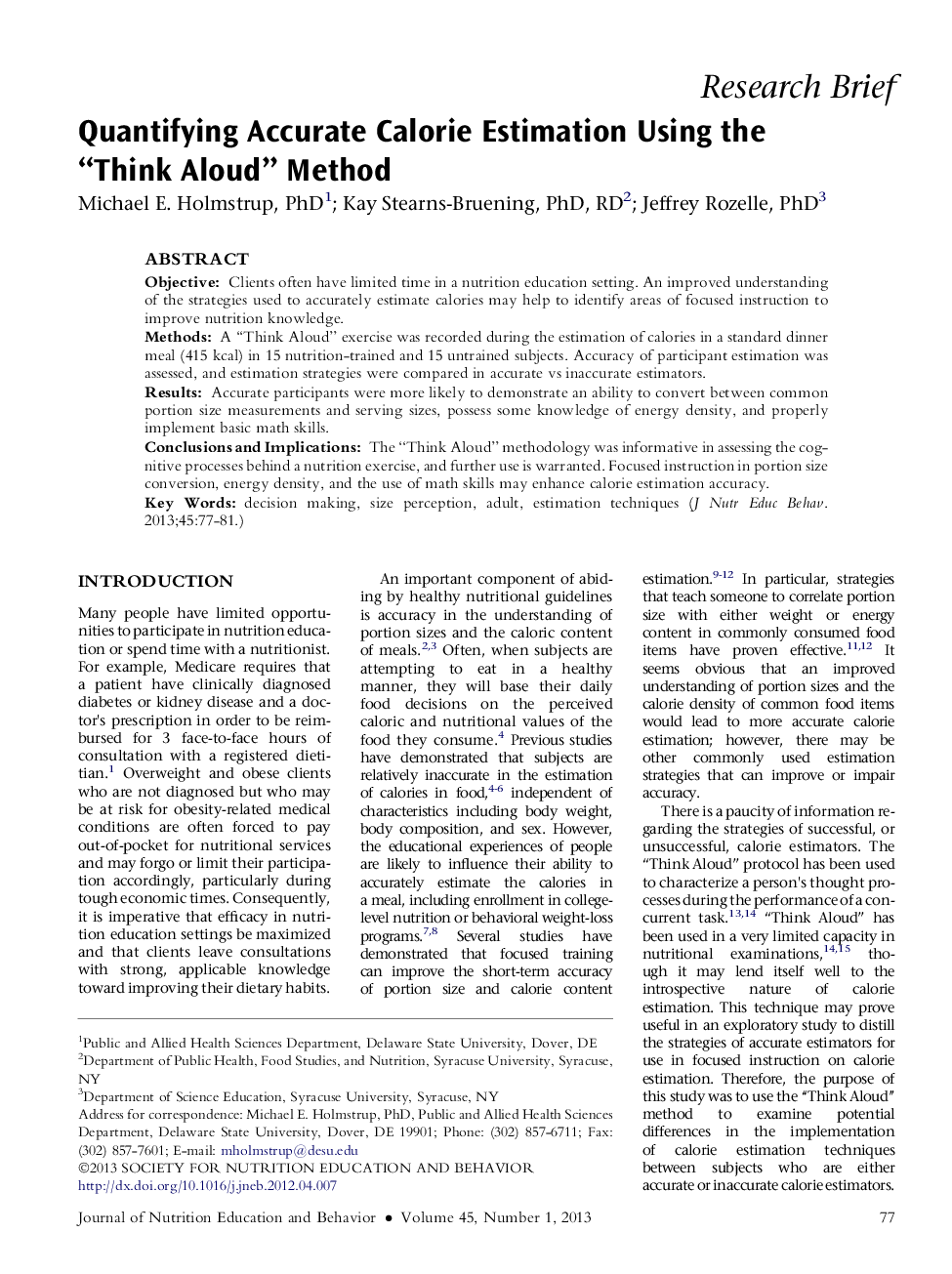| Article ID | Journal | Published Year | Pages | File Type |
|---|---|---|---|---|
| 361628 | Journal of Nutrition Education and Behavior | 2013 | 5 Pages |
ObjectiveClients often have limited time in a nutrition education setting. An improved understanding of the strategies used to accurately estimate calories may help to identify areas of focused instruction to improve nutrition knowledge.MethodsA “Think Aloud” exercise was recorded during the estimation of calories in a standard dinner meal (415 kcal) in 15 nutrition-trained and 15 untrained subjects. Accuracy of participant estimation was assessed, and estimation strategies were compared in accurate vs inaccurate estimators.ResultsAccurate participants were more likely to demonstrate an ability to convert between common portion size measurements and serving sizes, possess some knowledge of energy density, and properly implement basic math skills.Conclusions and ImplicationsThe “Think Aloud” methodology was informative in assessing the cognitive processes behind a nutrition exercise, and further use is warranted. Focused instruction in portion size conversion, energy density, and the use of math skills may enhance calorie estimation accuracy.
